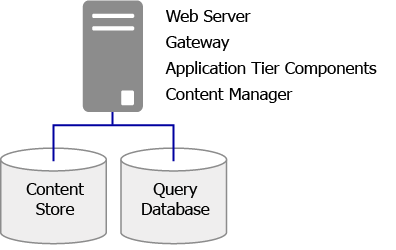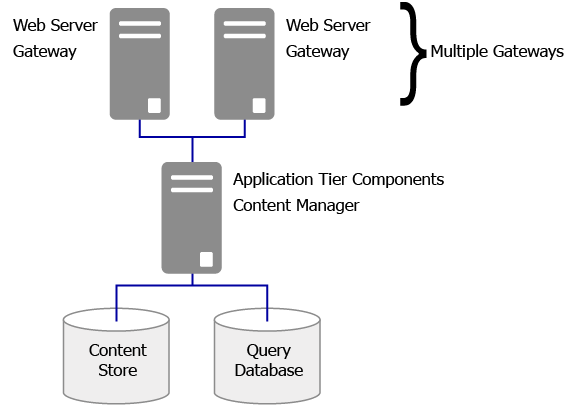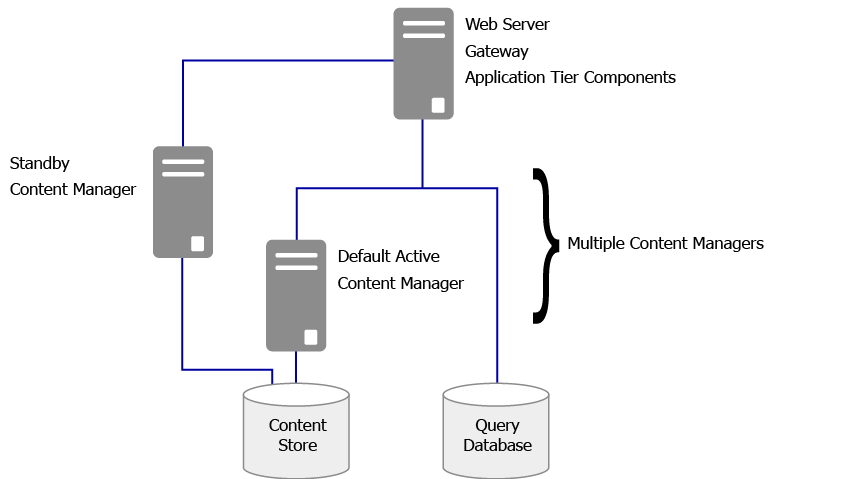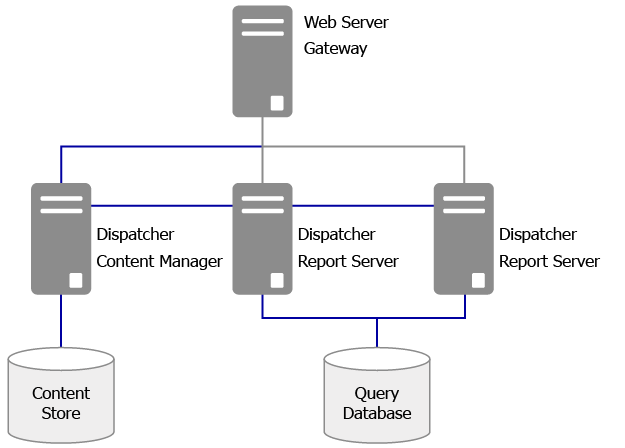In this topic
This is an archive related to a previous version of Esri Maps for IBM Cognos. If you need the current version go to http://doc.arcgis.com/en/maps-for-cognos/.
Distribution options
There are many possible configuration options for IBM Cognos BI server components; that is, there are many options for where to place the gateways, the Application tier components, and Content Manager. Your distribution will follow one or more of these options:
- All components on one computer
- Gateways on separate computers
- Application tier components and Content Manager on separate computers
Before installing and configuring Esri Maps for IBM Cognos, it is important that you understand your IBM Cognos distribution. The following is intended to be a high-level discussion of the distribution options. Please see the IBM Cognos Business Intelligence Installation and Configuration Guide for more details.
All components on one computer
This option is typically used for a demonstration or in a proof of concept environment. If you installed all server components for IBM Cognos BI reporting on the same computer, the following are true:
- Your web server is configured to host IBM Cognos web content.
- You have specified the connection information to the content store.

Gateways on separate computers
The gateway passes requests from the web server and clients to the dispatcher. It can reside on one or more web servers.
On each computer where the gateway is installed, the following are true:
- The web server is configured to host IBM Cognos web content.
- The Dispatcher URIs are configured.

Application Tier components and Content Managers on separate computers
Every organization's processing characteristics are different. Installing the application tier components and/or the Content Managers on separate computers is intended to address one or more of the following: performance, availability, capacity, or security.
More than one Content Manager
An IBM Cognos distribution can have any number of installations of Content Manager. One is active at any time, and the other installations act as a standby. To achieve failover capabilities, Content Manager is often installed on two or more separate computers. Further, the Content Manager can be installed separately from the Application Tier Components. Last, the Content Manager may even exist in the Data Tier rather than the Applications Tier.
In the following diagram, a request comes in to the gateway and it passes the request to the dispatcher (not shown). The dispatcher passes it to the default active Content Manager computer. If the computer the active Content Manager is on has failed, the request is redirected to the standby Content Manager computer (which would become the active when the default active Content Manager computer failed).

On each computer where Content Manager is installed, the following are true:
- Connection information to the content store has been specified.
- The Dispatcher URIs have been specified.
- All Content Manager URIs have been specified.
- The Dispatcher URI for external applications has been specified.
More than one Application Tier Components computer
To improve scalability in an environment in which there is typically a large volume of report requests to process, the Application Tier Components are installed on multiple computers dedicated to processing incoming requests. This distributes and balances loads among the computers and provides better accessibility and throughput than on a single computer, as well as failover support.

On each computer where the Application Tier Components are installed, the following are true:
- All Content Manager URIs have been specified.
- The Dispatcher URIs have been specified.
- The Dispatcher URI for external applications has been specified.
- Only the services that you require on each Application Tier Components computer are enabled.